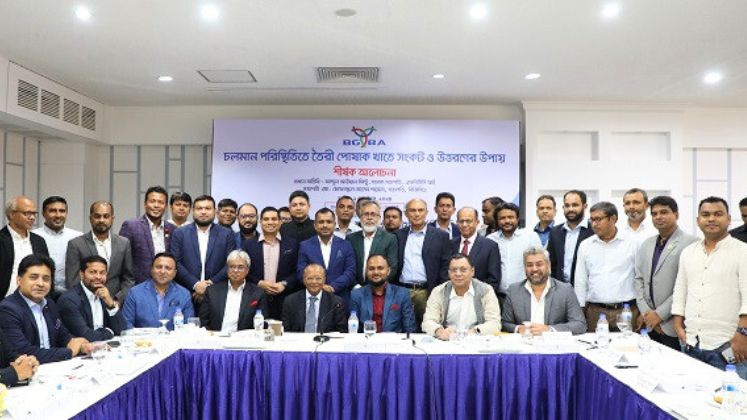
During a recent conference, business leaders demanded that the interim Government take quick measures to guarantee security and safety in the textile and apparel (T&A) facilities.
Leaders stressed the matter at a discussion event, titled Crisis and Way of Transition in the RMG Sector in the Ongoing Situation in Dhaka. The event was organised by the Bangladesh Garment Buying House Association (BGBA).
BGBA President Mohammad Mofazzal Hossain Pavel said, “The most alarming matter is that – as we directly work with brands – brands are not feeling confident in sending their team due to security concerns. So, if we cannot assure security in the textile and apparel industry then there is a big chance that we might lose a big amount of business. Ensuring safety will be the primary role and I urge senior trade leaders and to the Government to safeguarding safety.”
Mofazzal Hossain Pavel added, “Garment-buying houses contribute nearly US $ 12 billion to export orders in the readymade garments (RMG) industry. However, issues such as banking sector mismanagement and power and gas shortages hinder growth. Resolving these problems could enable us to export US $ 100 billion in a year. Cooperation, rather than competition, is crucial for achieving this goal.”
Business leaders in attendance additionally highlighted the need to revive Bangladesh’s economy, which has been badly damaged by disruptions in commercial operations over the previous unrest-filled months.
They said these interruptions were caused by poor banking sector management and power, oil, and gas issues that limited traders’ ability to stimulate the economy.
To revitalise Bangladesh’s economy which has been significantly harmed by disruptions in economic activity over the previous months of unrest the leaders highlighted that they called for the interim government to act immediately.
Concerns that past forecasts were based on overstated data prompted businesses to emphasize that Bangladesh should delay its scheduled graduation from the Least Developed Country (LDC) designation.
They also underscored the need for easier port clearance procedures, a transparent supply chain, and enhanced plant security to guarantee continuous manufacturing.






